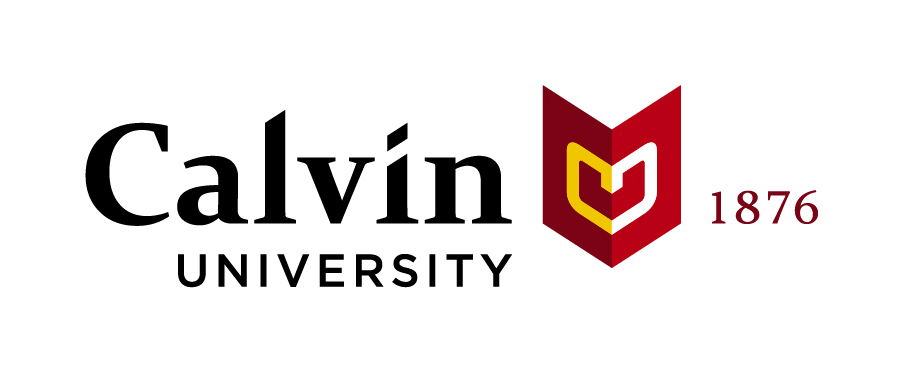 Home
Biography
Talks
Publications
Service
Home
Biography
Talks
Publications
Service
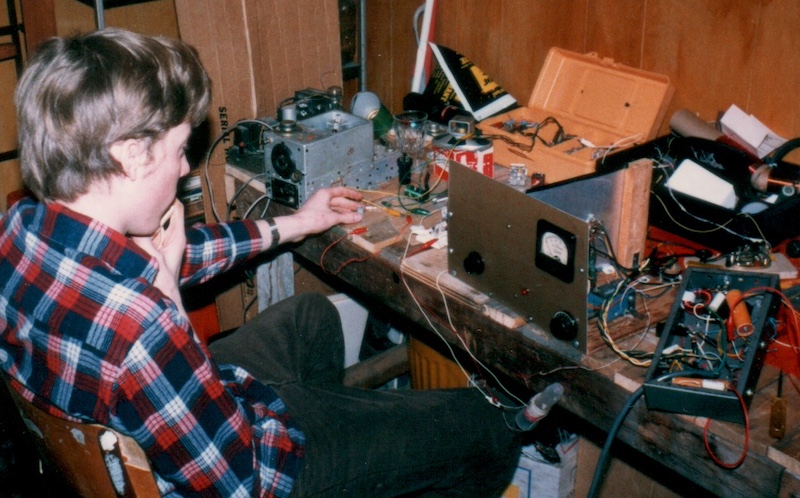 I grew up in a northern suburb of
Toronto where I developed early
interest in electronics and ham radio. The Bible tells us that God
has chosen the “time and place” in which we live (Acts 17:26). I am
grateful that I was born in a time that brought the invention of the
first computer on a chip, the introduction of the first personal
computers, the internet, and many other exciting technologies that have
since changed the world. I tinkered with many of the early personal
computers, beginning with the ZX81
(which I purchased with money earned from my paper route) and other
early personal computers like the Vic-20, C-64, Commodore PET, and early
IBM PCs. I later went on to study electrical engineering as a
first-generation student at the University of Waterloo.
I grew up in a northern suburb of
Toronto where I developed early
interest in electronics and ham radio. The Bible tells us that God
has chosen the “time and place” in which we live (Acts 17:26). I am
grateful that I was born in a time that brought the invention of the
first computer on a chip, the introduction of the first personal
computers, the internet, and many other exciting technologies that have
since changed the world. I tinkered with many of the early personal
computers, beginning with the ZX81
(which I purchased with money earned from my paper route) and other
early personal computers like the Vic-20, C-64, Commodore PET, and early
IBM PCs. I later went on to study electrical engineering as a
first-generation student at the University of Waterloo.
I am grateful that my vocation eventually brought me to a place where I was encouraged to think more deeply about how faith informs our work in technology. I am also grateful that my earlier years of tinkering as a hobbyist could inspire some of my later work with platforms like the Raspberry Pi, including being able to share my delight in computing with folks in various majority world countries.
Meeting Carina
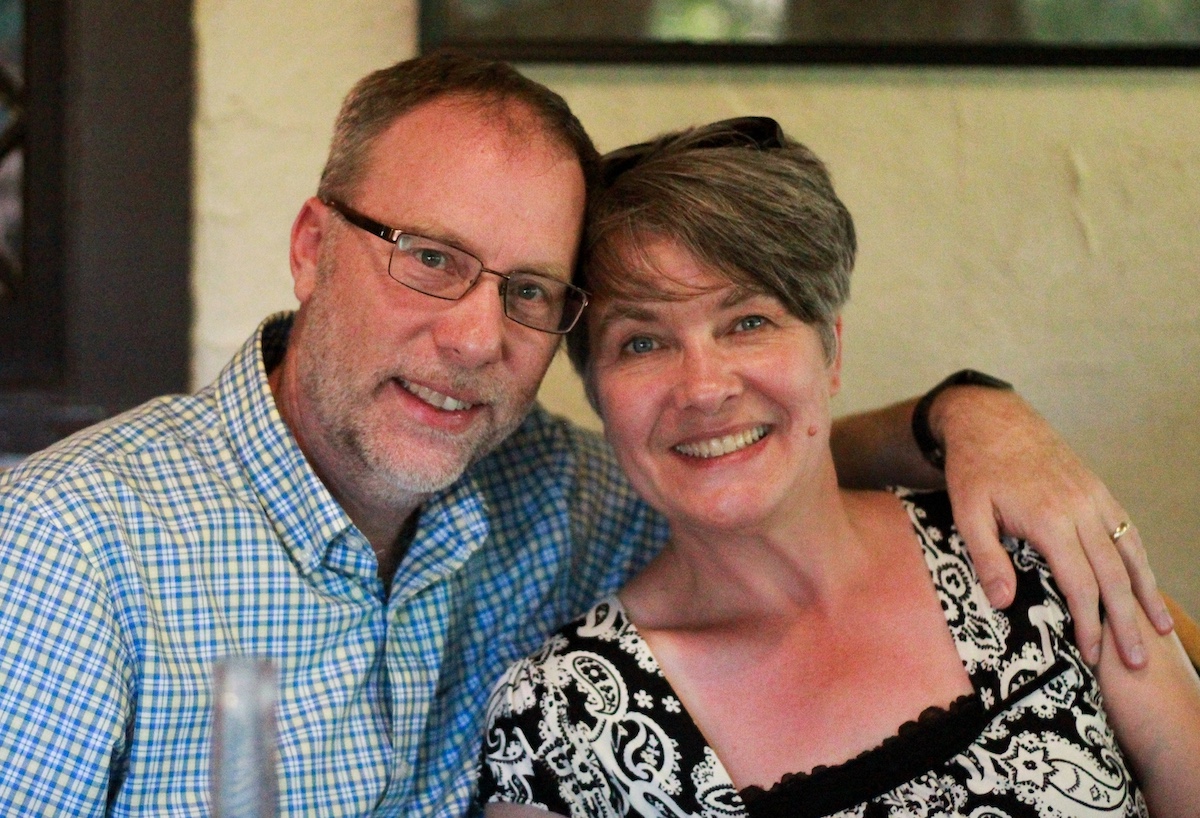 My wife, Carina, grew up in the
Netherlands on a dairy farm (a "boerderij") in the province of Utrecht
near the town of Breukelen. My
wife and I met while we were still undergraduate students; she was a
fine arts student at the new campus of
Redeemer College while I was studying engineering at the University
of Waterloo. In those days, I traveled frequently between Waterloo and
Redeemer to visit Carina in my (mostly) trusty, brown, nondescript, 1981
Dodge Omni. These were my first encounters with Redeemer, an institution
whose history
would intersect my own in many ways. We were married and Carina,
graduated from the first education class at Redeemer College and went on
to teach in the small town of Drayton, Ontario where we lived for a
time.
My wife, Carina, grew up in the
Netherlands on a dairy farm (a "boerderij") in the province of Utrecht
near the town of Breukelen. My
wife and I met while we were still undergraduate students; she was a
fine arts student at the new campus of
Redeemer College while I was studying engineering at the University
of Waterloo. In those days, I traveled frequently between Waterloo and
Redeemer to visit Carina in my (mostly) trusty, brown, nondescript, 1981
Dodge Omni. These were my first encounters with Redeemer, an institution
whose history
would intersect my own in many ways. We were married and Carina,
graduated from the first education class at Redeemer College and went on
to teach in the small town of Drayton, Ontario where we lived for a
time.
In subsequent years, we were blessed with four children for whom Carina was a loving and dedicated mother. After our children were school-aged, Carina returned part-time to teach in Ontario and later in West Michigan, where she was able to pursue her passion for outdoor education. She was a nurturing teacher and she touched the lives of many students over the years.
The Move from Industry to Teaching
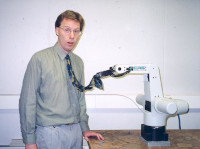 After graduating, I worked in industry as an
engineer, but I sensed a call to teaching and began to ponder what my
faith had to do with my work. Together with Carina, I decided to pursue
further education for teaching (despite it being far less lucrative than
an industry position). I eventually completed a PhD at McMaster
University in the area of robotics and computer vision and began working
fulltime at Redeemer College, where I taught for many years. It was at
Redeemer that I came to appreciate the importance of a solid liberal
arts core, also for those studying in fields like computer science.
Besides teaching, I began speaking and writing about faith and technology.
After graduating, I worked in industry as an
engineer, but I sensed a call to teaching and began to ponder what my
faith had to do with my work. Together with Carina, I decided to pursue
further education for teaching (despite it being far less lucrative than
an industry position). I eventually completed a PhD at McMaster
University in the area of robotics and computer vision and began working
fulltime at Redeemer College, where I taught for many years. It was at
Redeemer that I came to appreciate the importance of a solid liberal
arts core, also for those studying in fields like computer science.
Besides teaching, I began speaking and writing about faith and technology.
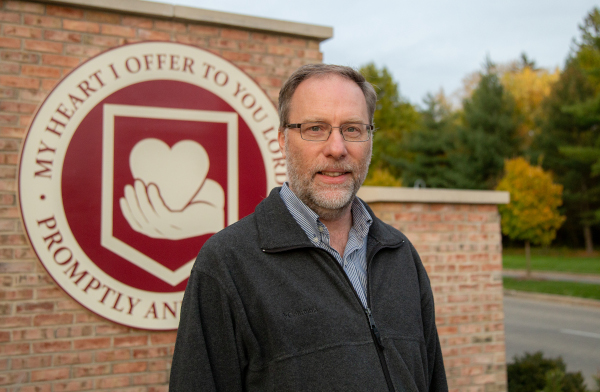 But my calling in Christian higher education
was not without its upheavals. After some years teaching at Redeemer we
found ourselves facing change.
We spent
a year in Sioux Center where I worked as a visiting professor at
Dordt College and then we
moved to Grand Rapids where I began teaching at Calvin College (now
University). The summer of our move to Grand Rapids was an eventful one
— two
of our children were married within weeks before we moved. In 2023,
I completed 20 years of
teaching in higher education.
But my calling in Christian higher education
was not without its upheavals. After some years teaching at Redeemer we
found ourselves facing change.
We spent
a year in Sioux Center where I worked as a visiting professor at
Dordt College and then we
moved to Grand Rapids where I began teaching at Calvin College (now
University). The summer of our move to Grand Rapids was an eventful one
— two
of our children were married within weeks before we moved. In 2023,
I completed 20 years of
teaching in higher education.
The Loss of my Wife
Sadly, my beloved wife Carina passed away in December 2023 after an intense battle with cancer. I wrote a lament for a wife and another reflection describing my grief. The text for her memorial service was based on the words of Psalm 27. Her life was a testimony to a sincere faith ▶️, and she reminded me that “knowing about God is not the same thing as knowing God.”
Dutch and Reformed Roots

I am also the son and grandson of Dutch immigrants to Canada. The picture on the right shows my family and I standing in the “Grote Markt” in front of the Martini Toren in Groningen, the Netherlands. This was the home-town of my paternal grandparents and where my father was born before they immigrated to Canada. My grandfather (“Opa”) later became the first employee at the Voortman bakery and worked there until he retired. My maternal grandparents originally came from the island of Rozenburg in South Holland, and were among the first wave of post-war Dutch immigrants to arrive in Canada in 1947. They eventually settled in Hamilton, Ontario, where they started a potato business. My grandparents helped establish some of the first Christian schools in Hamilton where later our children (their great-grandchildren) would attend.
The Dutch immigrant heritage in which I was raised was shaped by the Reformed tradition, one that believed faith was comprehensive and ought to inform every square inch. This tradition can be traced back to John Calvin and St. Augustine, but found fertile soil in the Netherlands during the era when my grandparents were born, in the time of Abraham Kuyper and Herman Bavinck. The tradition was transplanted to North America and elsewhere and continues to this day, also in institutions like Calvin University.

My hope is that I can help equip another generation (or two) of students to think deeply, act justly, and live wholeheartedly as agents of renewal in the area of technology.